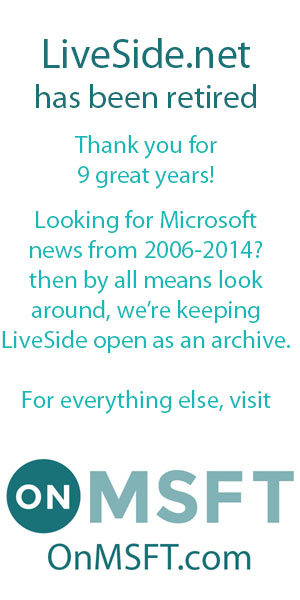Arriving in Anaheim earlier this week, we simply weren’t quite prepared for what we heard in our day long “reviewer’s workshop” on Monday, in the keynotes, and in getting someh hands on time with Windows 8 running on a touch enabled tablet. The changes are deep and profound, changing Windows and Microsoft in fundamental ways. These changes, however, are based on a few key assumptions that make the move to Windows 8 and Metro extremely risky. Microsoft will be walking a high wire in the coming months, and failure in any one of these assumptions could mean massive failures instead of massive success for the future of the company. Either are possible, and what’s even more risky is that much of the success of Windows 8 is not in Microsoft’s control.
The first assumption is that Windows users will embrace touch. In using the developer tablet Microsoft provided to us to review, we found touch and the Metro interface to be a compelling, fun, and addictive experience. You will want to touch the screen after using a touch device for a while: any screen. Your old laptop or desktops non-touch display will seem, well, broken.
But Windows 8 in a non touch environment isn’t nearly as compelling. Frankly, the use of the start screen instead of the start menu as the launching pad for apps is jarring and somewhat annoying, no matter what Steven Sinofsky would like you to believe. Windows 8 on a non touch device simply isn’t Windows 8, and selling new licenses for old hardware isn’t going to bring about the changes required to make Windows 8 a success.
The next assumption, and it’s the same assumption that Apple, Google, and even Amazon are making: that you’ll buy into the Windows/Metro ecosystem. The perfect scenario for Microsoft sees consumers using a Windows Phone, a Windows 8 ARM tablet, and a Windows 8 touch enabled laptop or desktop, and oh yeah an Xbox, which in reality is “touch enabled” via Kinect.
The third, and by far the most critical assumption, the basis for the success or failure of Windows 8 and “Microsoft re-imagined”, is that an “iPad killer” ARM based Windows 8 tablet comes to market, and soon. John Gruber nails the importance of Windows 8 and ARM, noting that unlike Intel based tablets, for example the developer machine Microsoft handed out to Build attendees, indications are that an ARM based Windows 8 tablet will be Metro only. Getting Metro, and more importantly touch, in the hands of lots of users in the form of a low cost, low power Metro themed ARM tablet is critical to a more widespread adoption of touch enabled devices running on Windows.
The developer story is as good or better than it’s been in the history of Microsoft, a company that has led the way in making developers successful. Microsoft has, in Windows 8, created an operating system that moves users into the next generation of computing, without cutting off the head of the most successful technology ecosystem in the world. But the success or failure of Windows 8 doesn’t hinge on developers and install base.
Microsoft must get users to embrace touch, embrace the Microsoft ecosystem including phones, tablets, and Windows 8 desktops and laptops, and embrace Metro. To do that, it must get touch in the hands of lots of users early, and it has set itself up to accomplish that by bringing ARM into the mix. If Microsoft’s partners can bring a generation of ARM devices to market that succeed, it will be well on the way to making the Metro dream a reality.
If on the other hand these ARM devices meet the same fate as Vista, with early failures marking them with a red X in consumers minds, users stick to Windows 7, Windows Phone continues to post disappointing sales, and Apple and Amazon roll on with popular alternative versions of what Metro brings to the table, Microsoft could just as easily find itself in serious serious trouble.
Steve Ballmer said earlier this year that Windows 8 was the most risky thing Microsoft has ever done, and indeed it is. The potential is there for great success: Microsoft has indeed “reimagined Windows”. It needs users and hardware partners to reimagine the market. Microsoft has effectively bet the company on Windows 8 and Metro. Will they win or lose?

